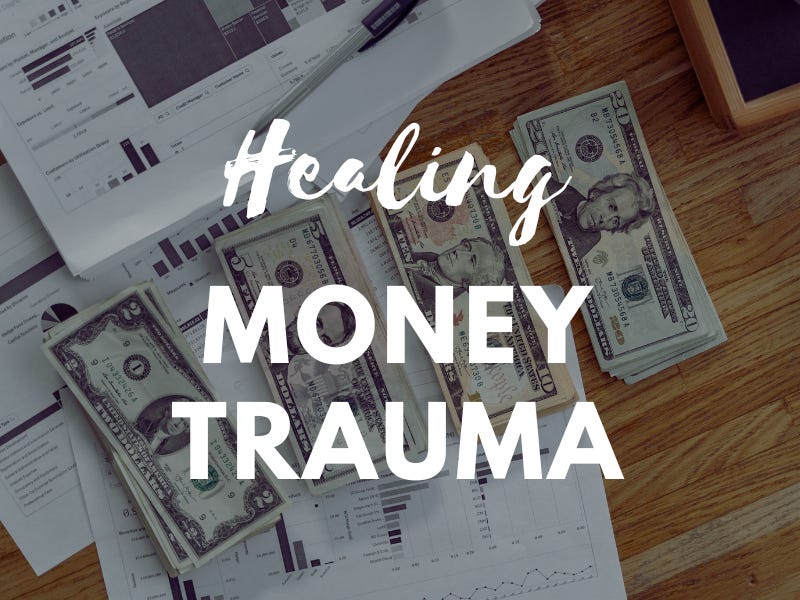Healing Money Wounds and Money Trauma: A Path to Financial Wellness
Introduction
Money, while often considered a means to an end, can have profound impacts on our emotional and psychological well-being. Money wounds and money trauma are experiences that affect many individuals, often without them even realizing it. In this article, we will explore what these terms mean, their common causes, and, most importantly, how you can embark on a journey to heal and achieve financial wellness.
Understanding Money Wounds
Money wounds are emotional scars and negative beliefs that stem from past financial experiences. They can be caused by various factors:
Childhood Influences: Our attitudes toward money often develop during childhood. Witnessing financial struggles, hearing negative money talk, or experiencing scarcity can create lasting money wounds.
Financial Setbacks: Personal financial crises, such as bankruptcy, foreclosure, or job loss, can leave deep emotional wounds, leading to fear, anxiety, or even shame related to money.
Cultural and Societal Pressures: Societal expectations and cultural beliefs about money can shape our views. Messages about success, worthiness, and what constitutes 'enough' money can be damaging.
Understanding Money Trauma
Money trauma is a more severe form of financial distress, often linked to a specific, highly distressing event or a prolonged period of financial hardship. This can include:
Extreme Loss: Sudden and significant loss of wealth or investments can lead to severe trauma. People who experience financial betrayal, like embezzlement or scams, can also suffer from money trauma.
Long-term Deprivation: Growing up in an environment of consistent poverty or deprivation can result in money trauma. It can create patterns of scarcity thinking and anxiety about finances that persist into adulthood.
Healing Money Wounds and Money Trauma
Healing money wounds and money trauma is essential for achieving financial wellness and peace of mind. Here are steps you can take:
Self-Awareness: Start by acknowledging your money wounds and money trauma. Recognize how these experiences have influenced your beliefs and behaviors related to money.
Seek Support: Consider therapy or counseling, especially if your money trauma is significantly impacting your life. Therapists can help you explore these issues in a safe and supportive environment.
Financial Education: Educate yourself about personal finance and money management. Understanding financial concepts can help you regain a sense of control over your finances.
Create a Positive Money Narrative: Challenge negative beliefs about money and replace them with positive affirmations. For example, if you believe you're bad with money, start telling yourself that you are capable of financial success.
Financial Planning: Develop a clear financial plan that aligns with your goals and values. Having a roadmap can reduce anxiety and provide a sense of direction.
Practice Mindfulness: Mindfulness techniques can help you stay present and reduce financial stress. Meditation, deep breathing exercises, and grounding techniques can be particularly effective.
Set Realistic Goals: Break down your financial goals into manageable steps. Celebrate small victories along the way to boost your confidence and motivation.
Professional Help: Consider consulting a financial advisor or coach who can guide you in making informed financial decisions and managing your money more effectively.
Conclusion
Healing money wounds and money trauma is a transformative journey toward financial wellness and emotional well-being. It's a process that requires self-compassion, patience, and a commitment to change. By taking proactive steps to understand and address these wounds, you can reshape your relationship with money and pave the way for a more secure and fulfilling financial future. Remember that healing is possible, and you deserve financial peace and abundance.




